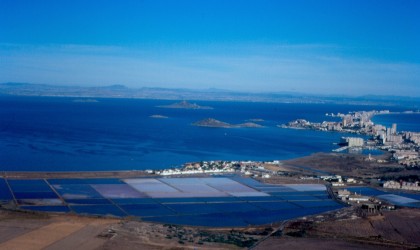
April 2013
 | April 2013 |
Proposed directive on maritime spatial planning and integrated coastal management | |
|---|---|
 Maritime spatial planning is commonly understood as a public process for analysing and planning the spatial and temporal distribution of human activities in sea areas to achieve economic, environmental and social objectives. The ultimate aim of maritime spatial planning is to draw up plans to identify the most efficient and sustainable use of maritime space. In 2008 the Commission published its ‘Roadmap for Maritime Spatial Planning: Achieving Common Principles in the EU�, followed up in 2010 with the Communication on ‘Maritime Spatial Planning in the EU-Achievements and Future Development�, which paved the way for the present proposal. Integrated coastal management is a tool for the integrated management of all policy processes affecting the coastal zone, addressing land-sea interactions of coastal activities in a coordinated way with a view to ensuring the sustainable development of coastal and marine areas. It ensures that management or development decisions are taken coherently across sectors. The 2002 ‘Recommendation on Integrated Coastal Zone Management´ defines the principles of sound coastal planning and management and how best to implement them. The EU is also a contracting party to the Barcelona Convention, which drew up a Protocol on Integrated Coastal Zone Management that entered into force in March 2011. This Protocol makes integrated coastal management compulsory for EU Member States bordering the Mediterranean Sea. The increasing and uncoordinated use of coastal and maritime areas results in competition for space and inefficient and unsustainable use of resources. Uncertainties and lack of predictability regarding appropriate access to maritime space has created a suboptimal business climate for investors, with potential job losses. To ensure the sustainability and environmental health of these various uses, maritime spatial planning and integrated coastal management will have to employ an ecosystem-based approach that ensures the protection of the natural resources that provide the basis for carrying out the various activities. The proposed action therefore is not sector-specific, but covers all policy areas of the Treaty on the Functioning of the European Union (TFEU) that have an impact on coasts, seas and oceans. It supports on-going implementation of sea-related policies in Member States through more efficient coordination and increased transparency. Maritime spatial plans and integrated coastal management strategies can also, at an early stage, improve the articulation of and reduce conflicts between economic objectives and environmental legislation. Will it be a directive supporting the ‘colonisation´ of the sea (which is the last frontier in these times of oil crisis)? Will it be a good instrument for controlling the development of big business and its impacts on ecosystems? All this is to be seen in practice. More info: francoise.breton@uab.cat | |